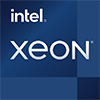
Intel Processor N95 Benchmark, Test and specs
Last updated:
The Intel Processor N95 is a 4 core processor. It can handle 4 threads simultaneously and was introduced in Q1/2023. The Intel Processor N95 is based on the 13. generation of the Intel Processor N series and requires a mainboard with the socket BGA. The Intel Processor N95 scores 1,028 points with one CPU core in the Geekbench 5 benchmark. When using all CPU cores, the result is 2,649 points.

| Name: | Intel Processor N95 |
|---|---|
| Family: | Intel Processor N (5) |
| CPU group: | Intel Processor N50/N100/N200 (5) |
| Architecture: | Alder Lake N |
| Segment: | Mobile |
| Generation: | 13 |
| Predecessor: | -- |
| Successor: | -- |
CPU Cores and Base Frequency
The 4 CPU cores of the Intel Processor N95 clock with 2.00 GHz (3.40 GHz). The number of CPU cores and the clock frequency of the processor are largely responsible for the overall performance.
| CPU Cores / Threads: | 4 / 4 |
|---|---|
| Core architecture: | normal |
| Cores: | 4x Gracemont |
| Hyperthreading / SMT: | No |
|---|---|
| Overclocking: | No |
| Frequency: | 2.00 GHz |
| Turbo Frequency (1 Core): | 3.40 GHz |
| Turbo Frequency (4 Cores): | 3.20 GHz |
Internal Graphics
With the Intel UHD Graphics 16 EUs (Alder Lake), the Intel Processor N95 has an build in graphic solution. It has 16 SM processors, which have a total of 128 texture shaders. The iGPU not only enables games, but also significantly accelerates video playback.
| GPU name: | Intel UHD Graphics 16 EUs (Alder Lake) |
|---|---|
| GPU frequency: | 0.60 GHz |
| GPU (Turbo): | 1.20 GHz |
| Compute units: | 16 |
| Shader: | 128 |
| Hardware Raytracing: | No |
| Release date: | Q1/2023 |
| Max. displays: | 3 |
|---|---|
| Generation: | 12 |
| Direct X: | 12.1 |
| Technology: | 10 nm |
| Max. GPU Memory: | 8 GB |
| Frame Generation: | No |
Hardware codec support
Processors that have an integrated graphics can play videos faster and more efficiently. This can have a positive effect on the battery life of notebooks, for example.
| h265 / HEVC (8 bit): | Decode / Encode |
|---|---|
| h265 / HEVC (10 bit): | Decode / Encode |
| h264: | Decode / Encode |
| VP8: | Decode / Encode |
| VP9: | Decode / Encode |
| AV1: | Decode |
|---|---|
| AVC: | Decode / Encode |
| VC-1: | Decode |
| JPEG: | Decode / Encode |
Memory & PCIeThe Intel Processor N95 supports up to 16 GB memory in up to 1 (Single Channel) memory channels. This results in a maximum memory bandwidth of 38.4 GB/s. |
|
| Memory type: | Memory bandwidth: |
|---|---|
| DDR5-4800 DDR4-3200 | 38.4 GB/s 25.6 GB/s |
| Max. Memory: | 16 GB |
| Memory channels: | 1 (Single Channel) |
| ECC: | No |
| PCIe: | 3.0 x 9 |
| PCIe Bandwidth: | 8.9 GB/s |
Thermal ManagementWith the TDP, the processor manufacturer specifies the cooling solution required for the processor. The Intel Processor N95 has a TDP of 15 W. |
|
|---|---|
| TDP (PL1 / PBP): | 15 W |
| TDP (PL2): | -- |
| TDP up: | -- |
| TDP down: | -- |
| Tjunction max.: | 105 °C |
Technical details
The Intel Processor N95 has a 10.00 MB large cache. The processor is manufactured in 10 nm. Modern production increases the efficiency of the processor.
| Technology: | 10 nm |
|---|---|
| Chip design: | Monolithic |
| Socket: | BGA |
| L2-Cache: | 4.00 MB |
| L3-Cache: | 6.00 MB |
| AES-NI: | Yes |
| Operating systems: | Windows 10, Windows 11, Linux |
| Virtualization: | VT-x, VT-x EPT, VT-d |
|---|---|
| Instruction set (ISA): | x86-64 (64 bit) |
| ISA extensions: | SSE4.1, SSE4.2, AVX, AVX2 |
| Release date: | Q1/2023 |
| Release price: | -- |
| Part Number: | -- |
| Documents: | Technical data sheet |
Rate this processor
Benchmark results

The benchmark results for the Intel Processor N95 have been carefully checked by us. We only publish benchmark results that have been created by us or that have been submitted by a visitor and then checked by a team member. All results are based on and fullfill our benchmark guidelines.
Cinebench 2024 (Single-Core)
The Cinebench 2024 benchmark is based on the Redshift rendering engine, which is also used in Maxon's 3D program Cinema 4D. The benchmark runs are each 10 minutes long to test whether the processor is limited by its heat generation.

|
AMD Ryzen 7 1800X
8C 16T @ 4.00 GHz |
||

|
AMD Ryzen 5 1600X
6C 12T @ 3.70 GHz |
||

|
Intel Processor N100
4C 4T @ 3.40 GHz |
||
|
|
Intel Processor N95
4C 4T @ 3.40 GHz |
||

|
Intel Core i5-8259U
4C 8T @ 3.80 GHz |
||

|
AMD Ryzen Threadripper 1920X
12C 24T @ 4.00 GHz |
||

|
Intel Core i7-4770K
4C 8T @ 3.90 GHz |
||
Cinebench 2024 (Multi-Core)
The Multi-Core test of the Cinebench 2024 benchmark uses all cpu cores to render using the Redshift rendering engine, which is also used in Maxons Cinema 4D. The benchmark run is 10 minutes long to test whether the processor is limited by its heat generation.

|
Intel Core i7-4710HQ
4C 8T @ 3.50 GHz |
||

|
Intel Processor N100
4C 4T @ 3.40 GHz |
||

|
Intel Core i7-8550U
4C 8T @ 4.00 GHz |
||
|
|
Intel Processor N95
4C 4T @ 3.40 GHz |
||

|
Intel Core i7-1065G7
4C 8T @ 3.90 GHz |
||

|
Intel Core i5-4570
4C 4T @ 3.60 GHz |
||

|
Intel Core i7-7700HQ
4C 8T @ 3.80 GHz |
||
Cinebench R23 (Single-Core)
Cinebench R23 is the successor of Cinebench R20 and is also based on the Cinema 4 Suite. Cinema 4 is a worldwide used software to create 3D forms. The single-core test only uses one CPU core, the amount of cores or hyperthreading ability doesn't count.

|
Intel Core i5-6500
4C 4T @ 3.60 GHz |
||

|
Intel Core i7-7700HQ
4C 8T @ 3.80 GHz |
||

|
Intel Core i3-N300
8C 8T @ 3.80 GHz |
||
|
|
Intel Processor N95
4C 4T @ 3.40 GHz |
||

|
Intel Pentium G3258
2C 2T @ 3.20 GHz |
||

|
Intel Core i3-8100
4C 4T @ 3.60 GHz |
||

|
Intel Core i5-4670
4C 4T @ 3.80 GHz |
||
Cinebench R23 (Multi-Core)
Cinebench R23 is the successor of Cinebench R20 and is also based on the Cinema 4 Suite. Cinema 4 is a worldwide used software to create 3D forms. The multi-core test involves all CPU cores and taks a big advantage of hyperthreading.

|
Intel Core i5-3570K
4C 4T @ 3.80 GHz |
||

|
Intel Core i5-6500T
4C 4T @ 2.80 GHz |
||

|
Intel Core i5-3570
4C 4T @ 3.80 GHz |
||
|
|
Intel Processor N95
4C 4T @ 3.20 GHz |
||

|
Intel Core i7-2860QM
4C 8T @ 2.50 GHz |
||

|
Intel Core i3-1115G4
2C 4T @ 3.00 GHz |
||

|
Intel Xeon X3470
4C 8T @ 3.20 GHz |
||
Geekbench 5, 64bit (Single-Core)
Geekbench 5 is a cross plattform benchmark that heavily uses the systems memory. A fast memory will push the result a lot. The single-core test only uses one CPU core, the amount of cores or hyperthreading ability doesn't count.

|
Intel Core i3-7300
2C 4T @ 4.00 GHz |
||

|
Intel Xeon Gold 6138T
20C 40T @ 3.70 GHz |
||

|
Intel Core i3-10110U
2C 4T @ 4.10 GHz |
||
|
|
Intel Processor N95
4C 4T @ 3.40 GHz |
||

|
Intel Core i3-7101E
2C 4T @ 3.90 GHz |
||

|
Intel Xeon Gold 6226
12C 24T @ 3.70 GHz |
||

|
Intel Xeon Gold 6248
20C 40T @ 3.90 GHz |
||
Geekbench 5, 64bit (Multi-Core)
Geekbench 5 is a cross plattform benchmark that heavily uses the systems memory. A fast memory will push the result a lot. The multi-core test involves all CPU cores and taks a big advantage of hyperthreading.

|
Intel Core i5-4440
4C 4T @ 3.20 GHz |
||

|
AMD Ryzen 3 4300U
4C 4T @ 3.70 GHz |
||

|
Intel Core i5-4590S
4C 4T @ 3.30 GHz |
||
|
|
Intel Processor N95
4C 4T @ 3.20 GHz |
||

|
AMD Ryzen 3 3350U
4C 4T @ 2.10 GHz |
||

|
Intel Core i7-2860QM
4C 8T @ 2.50 GHz |
||

|
Qualcomm Snapdragon 855 Plus
8C 8T @ 2.96 GHz |
||
Geekbench 6 (Single-Core)
Geekbench 6 is a benchmark for modern computers, notebooks and smartphones. What is new is an optimized utilization of newer CPU architectures, e.g. based on the big.LITTLE concept and combining CPU cores of different sizes. The single-core benchmark only evaluates the performance of the fastest CPU core, the number of CPU cores in a processor is irrelevant here.

|
Intel Xeon E3-1220 v3
4C 4T @ 3.50 GHz |
||

|
Intel Core i7-7820EQ
4C 8T @ 3.70 GHz |
||

|
Intel Atom x7425E
4C 4T @ 3.40 GHz |
||
|
|
Intel Processor N95
4C 4T @ 3.40 GHz |
||

|
Intel Xeon E5-1660 v4
8C 16T @ 3.80 GHz |
||

|
Intel Xeon E5-1620 v3
4C 8T @ 3.60 GHz |
||

|
Intel Core i3-7101TE
2C 4T @ 3.40 GHz |
||
Geekbench 6 (Multi-Core)
Geekbench 6 is a benchmark for modern computers, notebooks and smartphones. What is new is an optimized utilization of newer CPU architectures, e.g. based on the big.LITTLE concept and combining CPU cores of different sizes. The multi-core benchmark evaluates the performance of all of the processor's CPU cores. Virtual thread improvements such as AMD SMT or Intel's Hyper-Threading have a positive impact on the benchmark result.

|
Intel Xeon E5-2640 v2
8C 16T @ 2.20 GHz |
||

|
Intel Core i5-4690T
4C 4T @ 3.00 GHz |
||

|
Intel Core i5-1030NG7
4C 8T @ 3.20 GHz |
||
|
|
Intel Processor N95
4C 4T @ 3.20 GHz |
||

|
Intel Core i7-980X
6C 12T @ 3.33 GHz |
||

|
Intel Core i3-1110G4
2C 4T @ 3.00 GHz |
||

|
Intel Xeon W-2102
4C 4T @ 2.90 GHz |
||
Cinebench R20 (Single-Core)
Cinebench R20 is the successor of Cinebench R15 and is also based on the Cinema 4 Suite. Cinema 4 is a worldwide used software to create 3D forms. The single-core test only uses one CPU core, the amount of cores or hyperthreading ability doesn't count.

|
Intel Xeon E3-1231 v3
4C 8T @ 3.80 GHz |
||

|
Intel Xeon E5-2643 v4
6C 12T @ 3.70 GHz |
||

|
Intel Core i7-6700T
4C 8T @ 3.60 GHz |
||
|
|
Intel Processor N95
4C 4T @ 3.40 GHz |
||

|
AMD Ryzen 5 3450U
4C 8T @ 3.50 GHz |
||

|
Intel Xeon Gold 6126
12C 24T @ 3.70 GHz |
||

|
Intel Core i3-1000NG4
4C 8T @ 3.20 GHz |
||
Cinebench R20 (Multi-Core)
Cinebench R20 is the successor of Cinebench R15 and is also based on the Cinema 4 Suite. Cinema 4 is a worldwide used software to create 3D forms. The multi-core test involves all CPU cores and taks a big advantage of hyperthreading.

|
Intel Core i3-1115G4
2C 4T @ 3.00 GHz |
||

|
Intel Core i5-6400
4C 4T @ 3.00 GHz |
||

|
Intel Xeon X3470
4C 8T @ 3.20 GHz |
||
|
|
Intel Processor N95
4C 4T @ 3.20 GHz |
||

|
Intel Core i5-3570K
4C 4T @ 3.80 GHz |
||

|
AMD FX-6350
6C 6T @ 4.20 GHz |
||

|
Intel Pentium Gold 7505
2C 4T @ 3.50 GHz |
||
iGPU - FP32 Performance (Single-precision GFLOPS)
The theoretical computing performance of the internal graphics unit of the processor with simple accuracy (32 bit) in GFLOPS. GFLOPS indicates how many billion floating point operations the iGPU can perform per second.

|
Intel Core i7-3687U
Intel HD Graphics 4000 @ 1.20 GHz |
||

|
Intel Core M-5Y10a
Intel HD Graphics 5300 @ 0.80 GHz |
||

|
Intel Core M-5Y10c
Intel HD Graphics 5300 @ 0.80 GHz |
||
|
|
Intel Processor N95
Intel UHD Graphics 16 EUs (Alder Lake) @ 1.20 GHz |
||

|
AMD A9-9410
AMD Radeon R5 (Stoney Ridge) @ 0.80 GHz |
||

|
AMD A6-6420K
AMD Radeon HD 8470D @ 0.80 GHz |
||

|
AMD A6-6400K
AMD Radeon HD 8470D @ 0.80 GHz |
||
Estimated results for PassMark CPU Mark
Some of the CPUs listed below have been benchmarked by CPU-monkey. However the majority of CPUs have not been tested and the results have been estimated by a CPU-monkey’s secret proprietary formula. As such they do not accurately reflect the actual Passmark CPU mark values and are not endorsed by PassMark Software Pty Ltd.

|
Intel Core i5-5675C
4C 4T @ 3.30 GHz |
||

|
Intel Core i7-4860EQ
4C 8T @ 1.80 GHz |
||

|
Intel Core i5-6685R
4C 4T @ 3.40 GHz |
||
|
|
Intel Processor N95
4C 4T @ 3.20 GHz |
||

|
Intel Core i7-2600K
4C 8T @ 3.80 GHz |
||

|
Intel Core i7-4785T
4C 8T @ 2.70 GHz |
||

|
Intel Xeon E5-2609 v4
8C 8T @ 1.70 GHz |
||
CPU performance per watt (efficiency)
Efficiency of the processor under full load in the Cinebench R23 (multi-core) benchmark. The benchmark result is divided by the average energy required (CPU package power in watts). The higher the value, the more efficient the CPU is under full load.

|
AMD Ryzen Threadripper 7970X
65,269 CB R23 MC @ 348 W |
||

|
Intel Core i7-1355U
9,687 CB R23 MC @ 52 W |
||

|
AMD Ryzen 9 5950X
28,577 CB R23 MC @ 153 W |
||
|
|
Intel Processor N95
2,724 CB R23 MC @ 15 W |
||

|
Intel Core i5-13500H
15,116 CB R23 MC @ 84 W |
||

|
AMD Ryzen 5 7600
14,540 CB R23 MC @ 83 W |
||

|
Intel Core i5-13400F
15,890 CB R23 MC @ 94 W |
||
Benchmarks

Cinebench 2024 (SC)
272 entries
272 entries

Cinebench 2024 (MC)
271 entries
271 entries

Cinebench R23 (SC)
586 entries
586 entries

Cinebench R23 (MC)
565 entries
565 entries

Geekbench 5 (SC)
2,488 entries
2,488 entries

Geekbench 5 (MC)
2,461 entries
2,461 entries

Geekbench 6 (SC)
1,755 entries
1,755 entries

Geekbench 6 (MC)
1,703 entries
1,703 entries

Cinebench R20 (SC)
656 entries
656 entries

Cinebench R20 (MC)
604 entries
604 entries

FP32 SP (iGPU)
2,042 entries
2,042 entries

3DMark Timespy (iGPU)
516 entries
516 entries

PassMark CPU-Mark
2,392 entries
2,392 entries

CPU performance per watt (efficiency)
109 entries
109 entries
Description of the processor
The Intel Processor N95 was released in the first quarter of 2023 and comes from Intels mobile segment. The processor is manufactured with a structure width of 10 nanometers and is based on a monolithic chip design. The Intel processor N95 based on the Alder Lake N architecture has a 4.00 megabyte level 2 cache and the level 3 cache is 6.00 megabytes.The processor has 4 physical processor cores of the Gracemont type and unfortunately does not support Hyperthreading. It also cannot be overclocked, which is normal for Intel mobile processors. The 4 processor cores of the Intel Processor N95 have a basic clock frequency of 2.00 gigahertz and the maximum turbo clock when a single core is loaded is 3.40 gigahertz. If all processor cores are fully utilized in parallel, the maximum turbo clock per core is 3.20 gigahertz.
The Intel UHD Graphics 24 EUs (Alder Lake) is used as the internal graphics unit in the Intel Processor N95. This graphics unit is manufactured using the 10-nanometer process and was first installed in a processor in the first quarter of 2023. The Intel UHD Graphics 24 EUs (Alder Lake) has 24 execution units with 192 shader units and the clock frequency is 1.20 gigahertz. The iGPU achieves an FP32 computing power of 461 GigaFLOPS, which means it is more likely to be used in less powerful processors. For comparison, look at the 5-year-old Intel Core i7-9700K, which is at the higher end of the performance spectrum, but whose internal graphics unit also achieves 461 GigaFLOPS.
The Intel Processor N95 has a single memory channel and can be used with up to 16 gigabytes of RAM. The processor supports DDR4-3200, DDR5-4800 or LPDDR5-4800 memory. ECC memory is not supported by this CPU.
Popular comparisons
back to index





